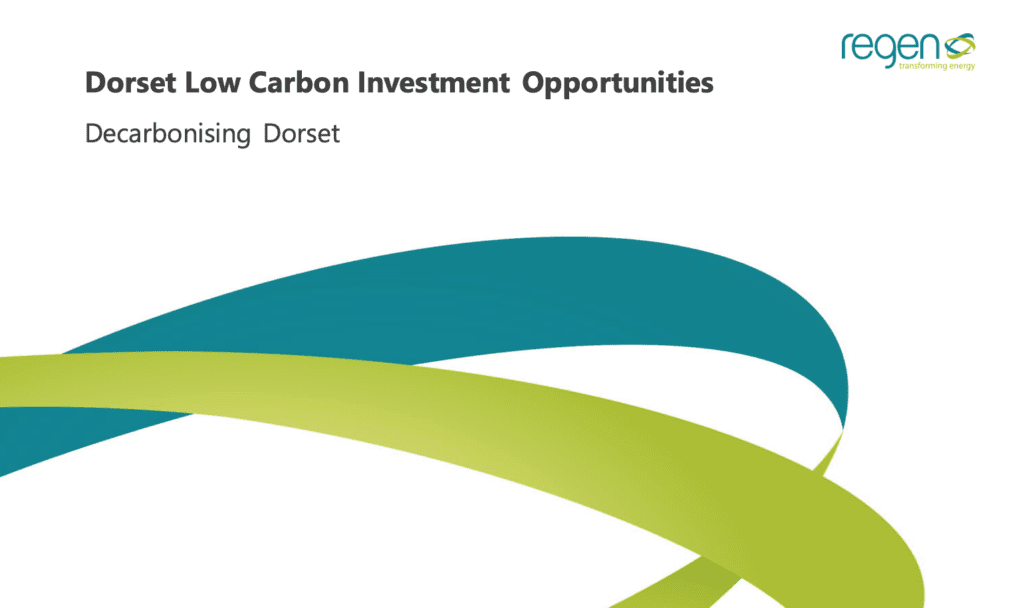A new report mapping out options for Dorset to become net zero by 2050 has been published by Dorset Local Enterprise Partnership (LEP). Set against a national net zero agenda, the Decarbonising Dorset report identifies an array of investment opportunities, including those bespoke to Dorset.
Dorset’s Local Industrial Strategy, developed by Dorset LEP with local stakeholders, agreed to tackle climate change head-on and develop a county which is energy resilient, utilising local renewable energy sources.
The report highlights that Dorset is a unique microcosm of future energy opportunities, boasting significant potential in all key low carbon energy sectors, from solar PV and offshore wind to hydrogen and energy storage, as well as having potential for onshore wind, marine energy, nuclear and bioresource. The historic onshore oil and gas production in the region, and salt caverns underlying Portland, offer opportunities for hydrogen, carbon and energy storage that are unique in the South of England.
Cecilia Bufton, Dorset LEP Chair, says: “This document is Dorset’s guide to achieving net zero emissions by 2050. It includes exciting opportunities to decarbonise Dorset and provide significant economic and social benefit for the county at the same time – low-carbon energy options ready for investment and immediate success.
“Our strategic vision for Dorset aligns with the government’s goal of national net zero emissions by 2050. We have shown how Dorset can do it, now we must work with local players to turn opportunities into action!”
Dorset’s demand for electricity is expected to more than double by 2050. To meet this demand, the Committee on Climate Change, the UK’s independent adviser on tackling climate change, has estimated that renewable energy generation capacity needs to quadruple.
According to this report from Dorset LEP, renewable energy solutions suitable for Dorset include solar, wind, hydrogen, bioenergy and nuclear. Solar presents a major opportunity for the county thanks to large areas of lower grade agricultural land. Meanwhile, hydrogen energy generation could benefit from storage within Dorset’s salt caverns, and marine-sourced heat pump projects can aid decarbonising heating.
As well as identifying clean energy opportunities, this report also highlights how improving the energy efficiency of buildings, moving to a low-carbon transport system, and exploring flexible energy network solutions, will all be key to achieving net zero. Electric vehicles, for example, make up just 0.3% of total cars registered in Dorset – developing infrastructure across the county to support these initiatives will be a crucial step forward.
Read the document online at www.dorsetlep.co.uk/dorset-net-zero and stay up to date with all progress on Dorset’s net zero ambition on Twitter and LinkedIn using #DorsetNetZero.
